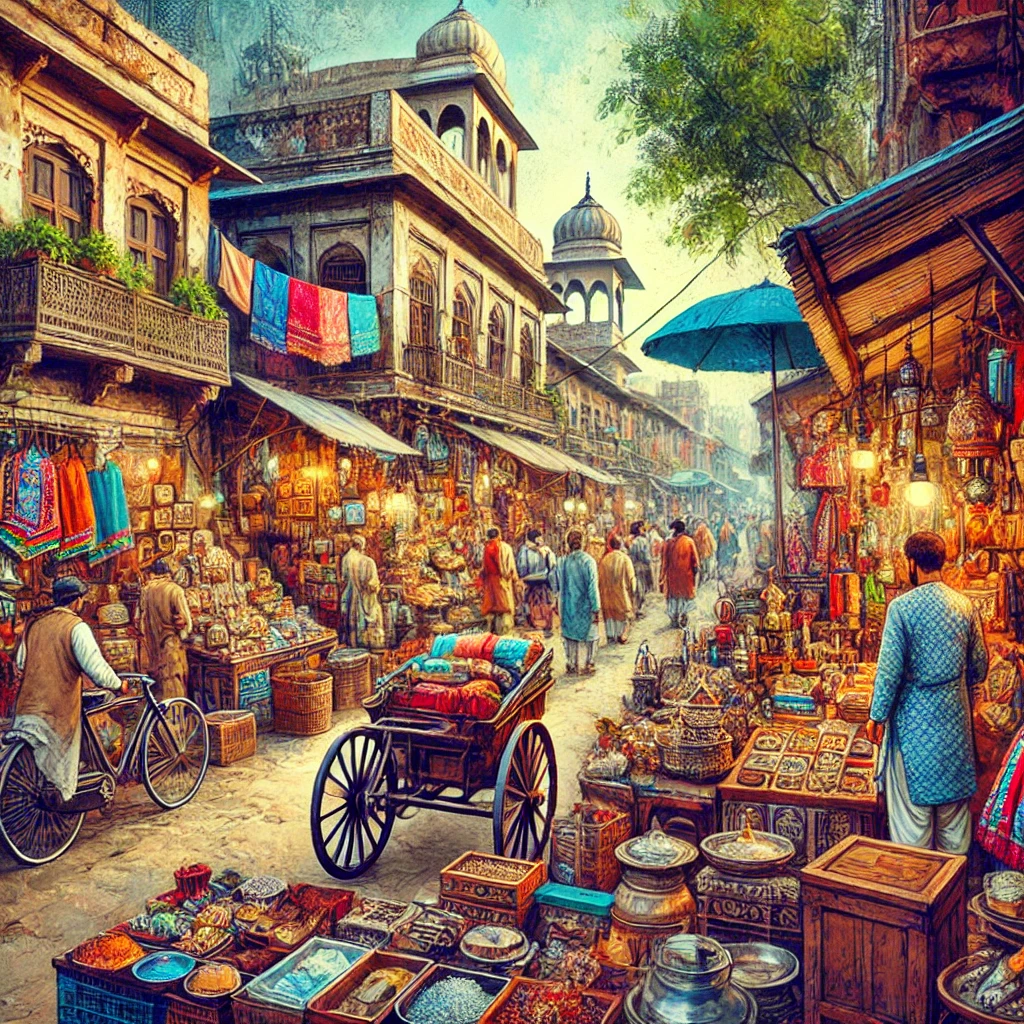Delhi’s Chor Bazaar is more than just a bustling marketplace known for its eclectic mix of goods and unbeatable bargains. Beneath its chaotic charm lies a thriving ecosystem that plays a crucial role in supporting small businesses and artisans. This market serves as a lifeline for many local entrepreneurs, offering them an affordable platform to showcase their unique crafts and handmade products to a wide audience.
A Closer Look at the Local Crafts and Handmade Products
Chor Bazaar is home to a variety of handcrafted goods that reflect India’s rich cultural heritage and artisanal skills. Some of the popular items include:
- Handcrafted Jewelry
- Small artisans sell intricate, hand-made jewelry pieces crafted from silver, brass, and semi-precious stones.
- Many designs feature traditional motifs inspired by Indian heritage.
- Some artisans specialize in creating customized jewelry based on customer preferences.
- Leather Goods
- Vendors showcase hand-stitched leather bags, belts, and shoes created by skilled craftsmen from nearby regions.
- These products are often made using eco-friendly, sustainable techniques.
- Certain stalls provide bespoke leather items tailored to individual tastes.
- Vintage Art and Antiques
- Chor Bazaar is famous for its collection of vintage clocks, paintings, and decorative items.
- Local artisans specialize in restoring and refurbishing these artifacts, giving them a new lease of life.
- Some of these items have significant historical value and attract collectors from all over the country.
- Handwoven Textiles
- The market offers a variety of handloom fabrics, including sarees, shawls, and cushion covers.
- These textiles are sourced from small weavers who rely on the market for their livelihood.
- Many of these weavers use traditional looms that have been in their families for generations.
- DIY Home Decor Items
- Upcycled and handmade home decor pieces such as lamps, wall hangings, and sculptures are crafted by local artisans using sustainable materials.
- Many of these items incorporate eco-friendly materials such as recycled wood and metal.
- Artisans frequently create custom pieces based on seasonal trends and customer demand.
Impact of the Market on Delhi’s Small Business Ecosystem
Chor Bazaar plays a significant role in empowering small businesses and artisans in several ways:
- Low-Cost Entry Point for Small Vendors
- Renting a shop in commercial markets can be expensive, but Chor Bazaar provides an affordable alternative.
- Many small business owners start here and gradually expand their operations.
- It serves as a testing ground for new products and ideas.
- Direct Consumer Interaction
- The market allows artisans to directly interact with customers, understand their preferences, and build a loyal clientele.
- This direct approach helps in better product customization and innovation.
- Word-of-mouth referrals are a crucial aspect of their business growth.
- Encouraging Sustainable Practices
- By promoting upcycled and second-hand products, Chor Bazaar encourages sustainable shopping habits.
- Artisans benefit from the growing demand for eco-friendly alternatives.
- The market helps in reducing waste and promoting a circular economy.
- Boosting Employment Opportunities
- The market provides employment to thousands of individuals, from craftsmen and weavers to small business owners and daily wage workers.
- Seasonal demand spikes, such as during festivals, lead to increased temporary employment.
- Preserving Traditional Art Forms
- Chor Bazaar acts as a platform for preserving and promoting India’s traditional crafts and indigenous art forms.
- Tourists and collectors visiting the market contribute to keeping these crafts alive.
- Many artisans pass down their skills to the next generation, ensuring continuity.
Challenges Faced by Artisans in Chor Bazaar
Despite its many benefits, artisans and small businesses face challenges such as:
- Competition from mass-produced goods.
- Fluctuating demand and seasonal sales.
- Lack of formal recognition and financial support.
- Limited access to modern marketing tools and e-commerce platforms.
Tips for Shopping at Chor Bazaar
- Come Early: Visiting early in the morning gives you access to the best deals before the crowds arrive.
- Bargain Smartly: Vendors expect haggling, but it’s essential to be respectful and reasonable.
- Inspect Items Carefully: Given the nature of second-hand goods, inspect products thoroughly before purchasing.
- Explore Hidden Alleys: Some of the best finds are located in smaller, lesser-known parts of the market.
- Bring Cash: Many vendors still prefer cash transactions over digital payments.
Conclusion
Delhi’s Chor Bazaar is more than just a market; it is a thriving hub that nurtures creativity, provides livelihoods, and promotes traditional artistry. Whether you’re a bargain hunter or a supporter of local craftsmanship, a visit to Chor Bazaar is a step toward sustaining India’s vibrant small business community.
FAQs
Q: What are the best times to visit Chor Bazaar for artisan goods?
A: Weekdays in the morning are the best times, as you’ll find fewer crowds and fresh stock.
Q: Can I find authentic handmade products in Chor Bazaar?
A: Yes, but it’s important to verify with the sellers and look for unique, detailed craftsmanship to distinguish them from mass-produced items.
Q: Are prices negotiable at Chor Bazaar?
A: Yes, bargaining is expected and often leads to getting the best deals.
Q: Do artisans take custom orders in Chor Bazaar?
A: Some vendors do accept custom orders, especially for items like jewelry and textiles.
Q: Is Chor Bazaar a good place to buy gifts?
A: Absolutely! You can find unique, handcrafted items that make for memorable gifts.
Q: Are there specific sections of the market dedicated to certain goods?
A: Yes, different lanes specialize in specific items, such as electronics, furniture, and textiles.

